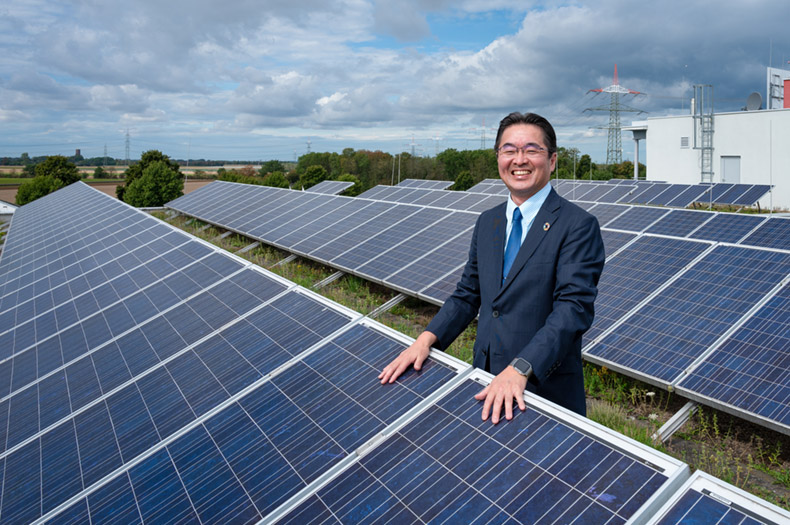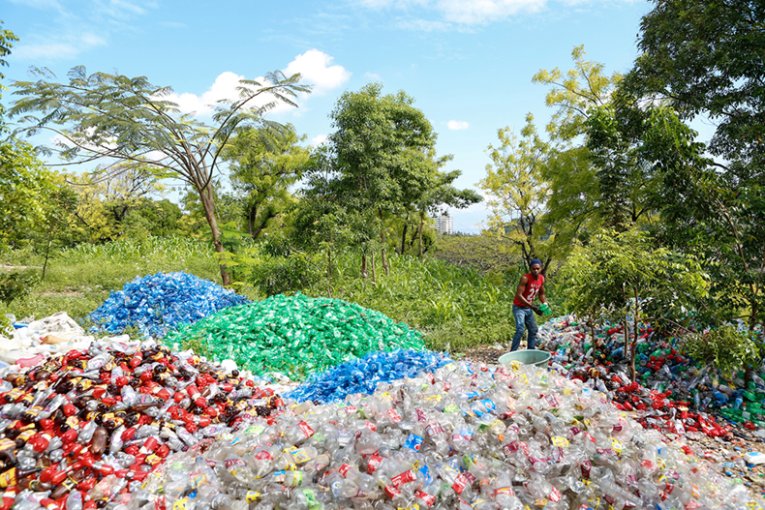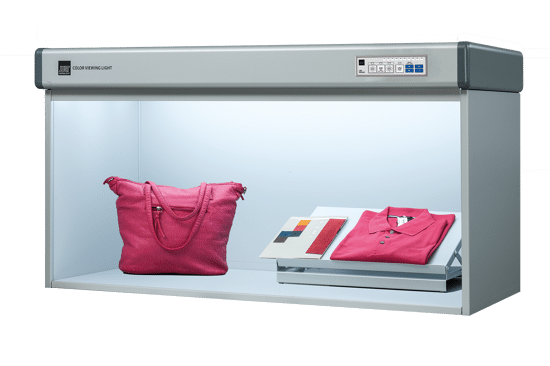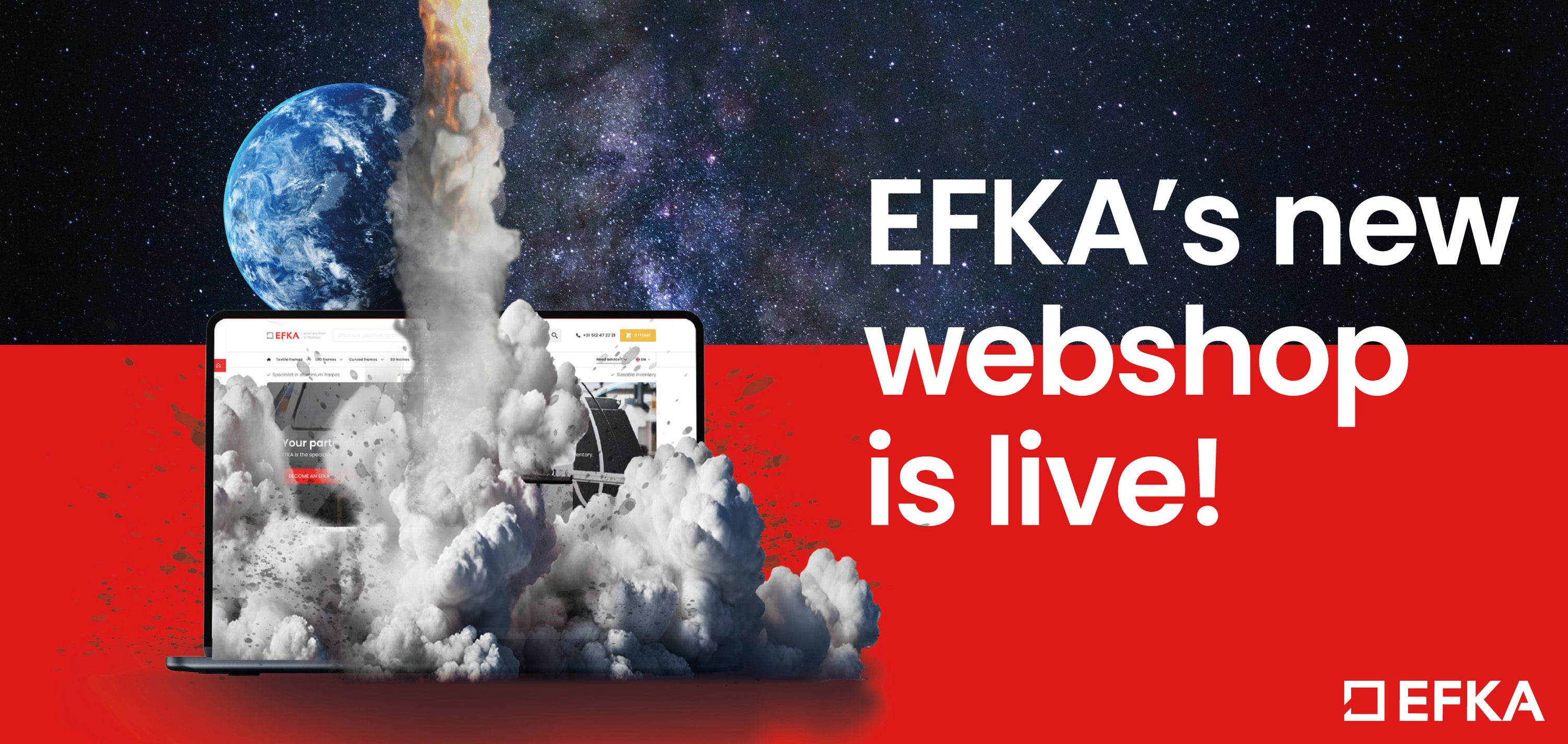The Long Road to a More Sustainable Printing Industry
.jpg?width=750)
Sonja Angerer reiterates the importance for businesses to incorporate sustainability goals into their business. Discover what businesses such as Epson Europe, HP, Canon, EFI and Mimaki Europe and doing to make their businesses more sustainable.
The three pillars of sustainability include:
- Social
- Ecological
- Economical
UN SDGS and Waste Reduction
.jpg?width=765&height=508) Caption: “Each and every one of us can make a green choice”, says Kazuyoshi Yamamoto, President at Epson Europe. The company published its third European Sustainability “Green Choice” Report in November 2020. Image Credit: Epson
Caption: “Each and every one of us can make a green choice”, says Kazuyoshi Yamamoto, President at Epson Europe. The company published its third European Sustainability “Green Choice” Report in November 2020. Image Credit: EpsonWaste reduction, especially in packaging, is also a sustainability goal at HP. In their Annual Sustainable Impact Report, published in June 2020, the company announced a new goal, to eliminate 75% of single-use plastic packaging by 2025. Particularly for smaller electronic devices like desktop printers and laptops. Moulded fiber packaging cushions will replace the typical plastic foam and bag.
HP has also sourced £1.7 million of ocean-bound plastic, an equivalent of about 60 million bottles. Several Notebook lines have been developed with shells of ocean-bound plastics, most notably the top-of-the-line HP Elite Dragonfly.
Saving The Climate
 Caption: HP has also sourced £1.7 million of ocean-bound plastic to be used for notebooks ad desktop printers, among other things. Image Credit: HP
Caption: HP has also sourced £1.7 million of ocean-bound plastic to be used for notebooks ad desktop printers, among other things. Image Credit: HPIn February 2021, Canon announced that the company has been certified with a EcoVadis Gold Rating for the sixth time in a row. Daniel Hahn, DACH Sustainability Manager at Canon Germany, comments, “As a company, we are committed to putting sustainability at the heart of everything we do. Receiving the sixth consecutive EcoVadis Gold rating is a testament to the success of our efforts. It shows both our partners and our customers that we are a reliable partner when it comes to sustainability.” Canon also publishes a yearly sustainability report.
Around the globe, Canon supports a wide variety of initiatives, including New York Marine Rescue Center, a primary responder for sick or injured seals, sea turtles, dolphins, porpoises and small toothed whales.
In March 2021, Konica Minolta announced that it received the SAM Sustainability Award in Silber. Amongst other certifications, the company holds the US Award since 2013, earning the Gold five times and the Silver four times. As part of their sustainability strategy, Konica Minolta engages in the “50 Climate leaders” community.
In February 2021, EFI partnered with Bosques Sostenibles in Spain to launch the Reforestation Project. For every new Cretaprint tile printer purchased, the company will plant 17 trees at Iruelas Valley as a part of EFI´s ongoing commitment to reducing carbon footprint. The trees represent the equivalent to approximately 3 tonnes of CO2 emissions. Upon the installation of each new Cretaprint, the EFI customer will receive a certificate confirming the planting of the trees.
Mimaki Europe is a ISO 14001 certified company, which means that they have an environmental management system in place. Amongst the goals published on their website are
- Promoting environmental-friendly product design
- Reducing failure rate during the manufacturing process, thus reducing waste.
Responsible Leadership
 Caption: The Durst “Bergkristall” building at Lienz (AUT) is a testament to their Tyrolian heritage. Image credit: S. Angerer
Caption: The Durst “Bergkristall” building at Lienz (AUT) is a testament to their Tyrolian heritage. Image credit: S. AngererIn January 2021, Xerox was named as one of the "World's 100 Most Sustainable Corporations" by Corporate Knights. The 17th annual ranking is an assessment of over 8,000 companies with more than $1 billion in revenues. Xerox is also listed as a Corporate Equality Index 2021 with a 100% rating as one of the (over 700) “Best Places to Work for LGBTQ Equality 2021”.
At Durst, an “Ethics and Code of Conduct“ has already been formalized since early 2015. The whole paper can be downloaded as a PDF on their website and shares their guidelines on social responsibility and environmental protection. In Section 3, “General Principles”, they give a promise to their local community: “As a Tirolean company we take on social and communal responsibility for our Lebensraum. We create regional apprenticeship positions and jobs, and our research contributes to a knowledge-based society.”
How do Manufacturer´s Sustainability Goals Affect the Broader Industry?
To become more sustainable, manufacturers and vendors are offering help to their customers so that they can have a smaller ecological impact. This could be recycling programs, in the field machine upgrading offers, software for a smoother production with less waste, energy-efficient machinery, and many other options. Sustainable change will only happen, if printers are determined to invest in making their businesses more sustainability.
Topics
Interested in joining our community?
Enquire today about joining your local FESPA Association or FESPA Direct
Recent news

The pros and cons of Digital Signage and Printed Signage
Sonja Angerer discusses the pros and cons of both digital signage and printed signage. Current developments such as artificial intelligence and spatial computing are changing the situation once again. How will this shift affect printers?

How to create an efficient smart factory
Debbie McKeegan speaks to industry specialists at Personalise Make Wear in Amsterdam about smart factories and customisation technology. Debbie speaks to Antigro, Caldera, Print Logistic, Inkcups and Kornit Digitial.

Standard lighting conditions for wide format printers and their many markets
Paul Sherfield shares the various standard conditions that are required for wide format printers as colours can appear differently dependent on the differing types of lighting and environments.
_compromised.jpg?width=550)